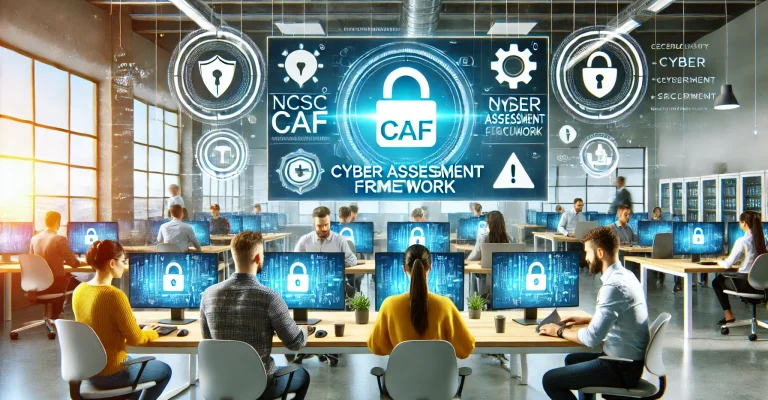Introduction
The Network and Information Systems (NIS) Regulations are more than just a mouthful; they’re a cornerstone of the United Kingdom’s cyber security framework. Given how reliant we’ve become on digital systems, understanding these regulations is key for anyone involved in sectors critical to national infrastructure. This guide aims to offer an even deeper yet easy-to-understand insight into what the NIS Regulations mean and how they affect organisations and, by extension, society.
What Are the NIS Regulations?
Introduced in 2018, the NIS Regulations aim to enhance the level of cyber security across organisations responsible for essential services and digital services in the UK. They were set up to cover sectors where a cyber attack could have devastating societal or economic consequences.
Reference: The UK Government’s Overview of NIS
Who Do They Affect?
Operators of Essential Services (OES)
These are the organisations you might traditionally think of as being part of the nation’s critical infrastructure, such as:
- Health: Including not just hospitals but also healthcare databases and telemedicine services.
- Energy: Think beyond electricity companies to include renewable energy sources and the growing network of electric vehicle charging stations.
- Transport: This covers not just airports and train stations but also the increasingly automated world of shipping ports.
Digital Service Providers (DSPs)
Interestingly, the regulations also cover:
- Online Marketplaces: Any platform that facilitates buying and selling online.
- Cloud Services: If your business relies on cloud computing, these regulations affect your service providers.
- Search Engines: Yes, even the likes of Google come under these regulations.
Reference: National Cyber Security Centre on NIS
The Pillars of Compliance
Why Should You Comply?
- Public Safety: The well-being of the general populace often relies on these essential services.
- Legal Obligations: Failing to comply can result in legal repercussions including substantial fines.
- Business Continuity: A cyber-attack can halt operations, leading to significant financial losses.
The Core Requirements
- Risk Management: The cornerstone of compliance involves identifying, evaluating, and implementing measures to reduce risks.
- Incident Reporting: Not just major, but also minor incidents need to be reported in a timely manner for evaluation.
- Ongoing Compliance: Regular audits, both internal and external, are essential for maintaining a high level of security.
Reference: The NIS Regulations Text
How to Achieve Compliance
- Initial Assessment: Begin by assessing if your organisation is an OES or DSP. Consult experts if needed.
- Tailored Security Measures: One size does not fit all; customise security protocols based on your organisation’s specific needs.
- Human Element: Employee training is key. Cyber hygiene among staff can prevent many common security breaches.
- Monitoring and Maintenance: Cyber threats evolve, and so should your security measures. Continuous monitoring is crucial.
Case Studies: Why It Matters
Imagine a local water treatment facility falling prey to a cyber-attack, resulting in a disruption of clean water supply. Or consider a healthcare database getting hacked, putting the personal information of thousands at risk. The NIS Regulations aim to make such scenarios less likely by enforcing stringent cyber security measures.
Common Misconceptions
- “It’s Just for Tech People”: Cybersecurity is a shared responsibility. From board members to frontline staff, everyone has a role to play.
- “It’s a ‘Set and Forget’ Regulation”: Compliance is an ongoing, dynamic process that adapts to emerging risks.
Reference: Cyber Essentials NCSC advice
Conclusion and Takeaways
The NIS Regulations are not just bureaucratic red tape; they’re a vital component of the UK’s national cyber security strategy. By understanding and adhering to these regulations, organisations not only protect themselves but also contribute to national security and public safety. So, whether you’re a business owner, a professional, or just a concerned citizen, keeping yourself updated about the NIS Regulations is crucial.
Remember, cyber security is an ongoing process, not a one-off event. For your weekly dose of the latest insights be sure to check back with us her at Cyber Made Simple














